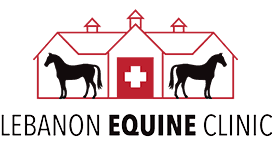FAQ
Lebanon Equine Clinic offers comprehensive care to horses in Lebanon and surrounding areas. Review some of our frequently asked questions below or give us a call at (513) 540-3113 to learn more.
-
Services
-
How Often Does My Horse Need a Dental Exam?Dental exams are recommended annually for most horses (can be done with spring shots). We use sedation and a dental speculum with a power float which allows us to do a thorough oral exam in addition to floating the teeth. The power float allows for a more precise and thorough float than with manual floats. Signs of dental problems are: fighting the bit, difficulty chewing or dropping feed, losing weight, swelling on the side of the face, unilateral nasal discharge, or bad breath. If your horse is a gelding, it is recommended that the sheath be cleaned at the time of the dental procedures while he is sedated.
-
How Often Should My Horse Be Vaccinated?
We invite you to schedule a consultation with one of our veterinarians to develop a vaccination program for your horse. We follow the American Association of Equine Practitioners (AAEP) recommendations for core vaccines. These include:
- Eastern/Western Equine Encephalomyelitis (EEE/WEE)
- Rabies
- Rhino/Flu
- Tetanus
- West Nile Virus (WNV)
- (our 6-way vaccine contains EEE, WEE, Rhino, Flu, WNV and Tetanus)
Vaccines that are strongly recommended especially for our geographical location are:
- Equine Influenza
- Potomac Horse Fever (PHF)
Risk-based Vaccinations (depending on your horse's schedule and travel)
- Strangles (Streptococcus equi)
- Botulism
Due to the duration of immunity, most horses in our area require the 6-way vaccine and Potomac Horse Fever twice yearly due to the length of the bug season in Ohio; however, we recommend those horses that are only vaccinated once a year have this performed in the early spring before the mosquitoes are prevalent. Rabies is given once yearly, either in the spring or the fall.
Please do not attempt to administer these vaccinations until you consult with one of our staff veterinarians.
-
How Often Should My Horse Be Given a Dewormer?We are currently recommending biannual fecal exams to test for parasites for most horses. This allows us to look at the number and type of parasite eggs present in your horse. We can then make a specific recommendation for a dewormer. If no eggs are present, a dewormer may not be needed at this time.
-
-
General
-
Do You Recommend Equine Insurance?We highly recommend medical insurance. Insurance pays for major medical & surgery expenses that can occur with your horse. The American Association of Equine Practitioners published a resource for helping you make an informed decision about equine insurance: Understanding Equine Insurance: Guidelines You Should Consider
-
Do You Offer Emergency Service After Hours and on Holidays?We offer 24-hour emergency services for all horses that can be shipped to our clinic. Ambulatory emergency services are available to current clients of Lebanon Equine Clinic. For emergencies after our normal business hours call: (513) 932-4181 Ext.2 The veterinarian on call will be paged as to the nature of your emergency and will return your call.
-

